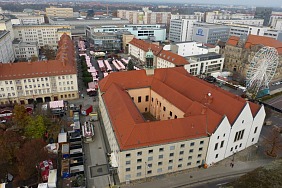The landscape of the job market is constantly changing, and many people are finding that they don’t need a degree to land a great job. With the rise of remote work, more and more people are able to find meaningful and rewarding work without a degree. But how can one get started with remote work without a degree? Read on for the answer.
Research the Market
The first step in getting started with remote work without a degree is to research the job market. This means understanding what kind of jobs are available, what skills are necessary to qualify for them, and what the competition looks like. It’s important to have an idea of what the job market looks like before you start applying for jobs. You can do this by doing some online research, reading job postings, and talking to people who are already working in the field.
Build Your Network
Having a strong network is essential for anyone looking to break into a new field. It’s even more important if you’re looking to find work without a degree. Connecting with people who are already in the industry can give you valuable insight into the job market and help you find remote work opportunities. You can start building your network by attending virtual events, joining online forums, and reaching out to people on social media.
Develop Your Skills
No matter what kind of job you’re looking for, having the right skills is essential to landing it. It’s especially important if you’re looking for remote work without a degree. You can start by taking some online courses or reading up on the skills needed for the type of job you’re interested in. You can also look for ways to gain experience, such as volunteer work or internships. Developing these skills can help you stand out from the competition and increase your chances of getting hired.
Find the Right Opportunities
Once you’ve done your research and developed your skills, it’s time to start looking for the right remote work opportunities. You can start by browsing job boards and online networks, such as LinkedIn and Indeed. You can also reach out to potential employers directly and ask if they’re hiring. It’s important to remember to tailor your applications to the job you’re applying for and to demonstrate the skills you’ve developed.
Stay Productive and Connected
When you’re working remotely, it can be easy to become isolated and disconnected. It’s important to stay connected with your colleagues and maintain productivity. Having a set schedule and a dedicated workspace can help you stay on track and be more productive. You should also make sure to take breaks and stay connected with your team. You can do this by setting up virtual meetings, using messaging apps, and staying in touch through email or phone.
Legal Considerations and Career Development
When working remotely, it’s important to be aware of the legal considerations. This includes understanding the laws in your region, making sure you’re following the terms of your contract, and understanding the tax implications of your work. It’s also important to think about your career development. This means setting goals, networking, and continuing to develop your skills. Doing so can help you advance your career and find more rewarding remote work opportunities.
Getting started with remote work without a degree can be a daunting task. But with the right research, network, skills, and legal considerations, you can find meaningful and rewarding work without a degree. Good luck!














